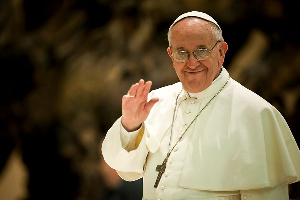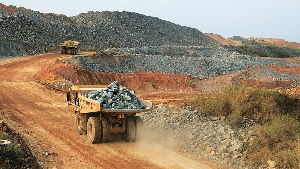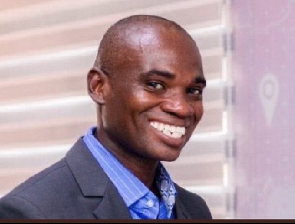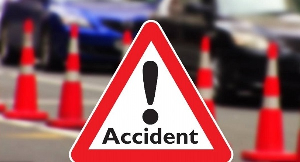Marking the First 100 days in office is a political culture that originated from USA and many use the occasion to evaluate the performance of new Presidents. Historically, the practice originated from the presidency of Franklin D. Roosevelt, the 32nd President of USA. He was elected in the midst of a great depression, where America suffered its worst economic crises in history.
According to historians, within the first 100 Days of his administration, despite the overwhelming crises before the country, President Roosevelt successfully orchestrated a complete break from the past of his Predecessor President Herbert Hoover and championed a new start with the American people.
In an Article by Elaine Kamarck, Senior Fellow of Governance Studies and a Director of Center for Effective Policy Management titled “The first 100 days: When did we start caring about them and why do they matter?” Published on Friday, 16th April, 2021, on Brookings, this was how she described the significance of President Roosevelt’s actions.
“It was the breathtaking scope of bold and new actions, both legislative and regulatory, that set the bar so high. To name but a few: in those 100 days he declared a bank holiday which stopped the disastrous run on the banks, he took America off the gold standard, and he passed groundbreaking legislation for farmers and homeowners and for the unemployed.
He also passed amendments to the hated Volstead Act which had created prohibition. Immediately, “beer parties” were held all over the country in celebration.”
In Ghana under the 4th Republic, there are clear examples of Presidents Kufour, Prof. JEA Mills, John Mahama, and Akuffo Addo being subjected to such reviews. Though not very popular with Presidents elected for a 2nd term, I believe the 100 Days in Office benchmark is a critical measure for what the future holds in every administration.
Due to policy time lag, it gives considerable time for policies to have full impact on people. That is why within the first 100 days, every political actor should be able to define clear cut policy directions for their communities and their people whether at the Unit Committee level, Assembly level, Municipal level, Parliamentary level or at the level of the Presidency.
The following provides the highlights of the first 100days of President Akufo Addo’s second term in office:
Introduction of 7 Killer Taxes
Having promised to change the focus of the economy from taxation to production, it is worrying that Government in its 2021 budget statement and economic policy has imposed seven ‘killer’ taxes namely Covid-19 health levy, road toll increases, gaming tax, sanitation and pollution levy (borla tax), 1% increase in NHIL, 1% increase in VAT flat rate, increased Energy Sector Levy (ESLA) and financial sector clean up levy.
It is basic economics that taxes contract the economy through reduction in consumption and spending, increases the cost of business, and leads to high cost of products because the burden of tax is transferred to the final consumer.
The imposition of the taxes reflects the insensitivity of this Government and dishonesty in the management of the economy. It is therefore incumbent upon Government to allow for an independent audit of the Covid-19 Fund in order to give Ghanaians a detailed breakdown of relief expenditure, which according to this Administration costs GHS19billion and for which taxes have been introduced.
Economic Mismanagement – 0.4% Economic Growth Rate for Year 2020
In delivering a speech at the Heritage Foundation in Washington, D.C., USA, on October 20, 2015, on the theme “A Vision for Ghana and Africa”, President Akufo Addo remarked.
In spite of the above statement, Ghana’s economy grew at a rate of 0.4% in 2020, according to the Ghana Statistical Service (GSS), below government’s revised target of 0.9% as well forecasts of market analysts – This is the lowest growth rate in the history of the Fourth Republic and one of the lowest in the history of the Republic, reflecting the poor performance of government, particularly, the Economic Management Team (EMT) in the management of the economy.
It is therefore not surprising that Ghana obtained a rank of 107th with a score of 0.67 in 2020 in the Global Gender Gap Index issued by the World Economic Forum as compared to 59th with a score of 0.71 in 2016.
Increased Borrowing/ High Debt to GDP Ratio
On May 11 2018, President Akufo Addo in delivering a keynote address at the Oxford Africa Conference at University of Oxford in Oxford, United Kingdom, stated on foreign aid: “I believe it is time to accept that aid will not take us to the status of a developed nation.
It is also obvious that many of those who have been given aid no longer do so with any enthusiasm. It shows in the many ruses that have been devised to make the aid money remain in the donor nation instead of the recipient nation. It is time to relieve the aid donors of their burden. It is not a healthy setup. It is bad for both the giver and the receiver”.
However despite this statement, it is sad to observe that according to the 2021 budget, Ghana’s debt stock has ballooned from GHS122billion as at December 2016 to GHS291.6billion as at December 2020, an increase of 139 percent, excluding the financial sector bailout, representing about 76% of GDP including financial sector bailout, with external debt obligations about 40% of GDP – This is very disappointing with the World Bank predicting Ghana’s debt to GDP to be about 81% by 2023.
According to IMF April 2021 report, Ghana’s debt to GDP ratio is expected to reach 81.5% by the end of this year, with further increase in debt to GDP ratio to 83.2% by 2022, 84.8%, 86.0% and 86.6% by 2023, 2024 and 2025 respectively. This means the country’s debt will rise beyond GHS300 billion before the end of 2021.
Again, country specific data and projections for key fiscal variables are based on the April 2021 World Economic Outlook database. This confirms earlier concerns I raised in an earlier article when this year’s budget was first read as figures from the Bank of Ghana showed that Ghana’s total public debt stock reached an all-time, with external debt at GHS141.8 billion, approximately USD24.7billion representing 37.0% of GDP, and domestic debt slightly higher at GHS149.8 billion at the end of 2020, representing about 39.1% of GDP.
Also, ex-Presidents, President Kufuor, John Evans Atta Mills, and John Dramani Mahama combined borrowed $4.5 billion with respect to Eurobonds. However, after four years, President Akufo Addo has borrowed $13billion in Eurobonds alone, the most by any President in the history of Ghana. In assessing Ghana’s economic structure risk, the Economic Intelligence Unit (EIU) in its report released in February 2021 noted “public debt is large and rising and the government remains in default after having missed payments in 2018.
A sharp drop in oil prices has exposed the vulnerability of Ghana’s dependence on hydrocarbons for export revenue.”
In other words, Ghana is hardly able to ensure prudent debt servicing through prompt payment of maturing principals accruing from official credit facilities, thus, leaving the country in a position which can be described as highly debt distressed.
Lost Fight Against Illegal Mining (Galamsey)
In July 2017, President Akufo Addo served notice that he was prepared to put his Presidency on the line in his quest to fight illegal mining, otherwise known as galamsey. Addressing a two-day workshop on galamsey for traditional leaders drawn from different parts of the country, the President said: “I have said it in the Cabinet, and perhaps this is the first time I am making this public, that I am prepared to put my Presidency on the line in this matter”.
However, considering the state of galamsey today and its devastating effect on the environment including land, rivers and water bodies, it is clear to all and sundry that the President’s fight against galamsey has failed. More evidently clear is the failed approach by the President in fighting against the menace.
Delivering a speech at the National Dialogue on Small Scale Mining on Wednesday, April 14 2021, the President said although he is determined to enforce the laws on individuals who are caught engaging in ‘Galamsey’ he will not activate them based on mere allegations. The President remarked “I am determined to enforce the laws on illegal mining no matter the subject, high or low. I will, however, not act on hearsay or mere allegations without more.
I will not hesitate to act though where the evidence is hard before the police. “And I will do so irrespective of the standing of the person or persons involved. That is the true meaning of equality before the law,” he stressed.
No one is saying that the President should convict persons based on hearsay or lack of evidence. In any case the President does not have the power to convict any person in Ghana – only the Court does. However, this demonstrates the seemingly lack of interest by President Akufo Addo to tackle the ‘galamsey’ menace head-on and crack down the whip on corruption.
This is in sharp contrast to promises by then Presidential Candidate of the New Patriotic Party, Nana Akufo Addo, who indicated his readiness to differently fight corruption through, among other things, the introduction of the Anas principle, the mode of investigation used by one of Africa’s ace investigative journalists, Anas Aremeyaw to create a new culture of fear for corrupt practices.
It is therefore not surprising that up to date practically no sanctions nor sanctions have been meted out to Western Regional Secretary of the New Patriotic Party (NPP) and former Secretary of the Inter-Ministerial Committee on Illegal Mining, Charles Bissue, for his role in the galamsey fraud documentary despite corruption allegations claims against him by same Anas Aremayaw Anas, whose principle the President promised to adopt.
Indeed, this failure is clearly admitted and confirmed by virtue of the fact that the President failed to reappoint the former Minister of Environment, Science, Technology and Innovation, Dr. Frimpong Boateng, whilst taking no action or calling for investigations on the 500 missing excavators saga.
Also few days ago, the President reiterated that he will do everything in his power to fight galamsey in his second term. I can only wish H.E the President well since this provides further confirmation that putting his Presidency on the line in the fight against galamsey during his first term in office did not yield any positive impact.
Fight Against Corruption
In speaking at the Great Hall of the Kwame Nkrumah University of Science and Technology on the theme ‘Why Ghana Cannot Afford Corruption’ on October 3, 2012, then Candidate Akufo Addo made the following remarks “Improving the scale of integrity in society is an unwritten mandate of every government, but fighting corruption is a constitutional imperative imposed on the State, headed by the President and government.
Indeed, Article 35(8) of the constitution of our Republic enjoins the state to ‘take steps to eradicate corrupt practices and the abuse of power’. With your help, I want to be the President who fixes the problem of corruption in our country”. However, with our help, President Akufo Addo has rather worsened the canker and problem of corruption in Ghana.
In spite of the above comments and commitment, the President has done little to tackle the menace since taking office in January 2017, considering the many corruption scandals in the past four years. It is no wonder co-founder and immediate past Executive Director of Afro barometer, Prof. Emmanuel Gyimah-Boadi in an interview on The Point of View on Citi TV questioned President Akufo-Addo’s commitment to fighting corruption, highlighting recent developments including the sacking of former Auditor General, Mr. Daniel Yaw Domelevo, off his duties as exposing the President’s lack of credibility in fighting corruption.
Mr. Gyimah-Boadi stated:
“As for the President’s credibility in terms of anti-corruption, I am afraid to say it is in tatters. It has been in tatters for a while but this puts a nail in the coffin. I see Domelevo as a victim of well-orchestrated actions by individuals who are [government] officials and by state institutions,” he said.
This is also reaffirmed by ex-Special Prosecutor, Martin Amidu, who described the President as the mother serpent of corruption. It is therefore not surprising that between 2017 and 2020, Ghana obtained an average score of 41.25 following scores of 40 for 2017, 41 for 2018, on the Corruption Perception Index as compared to an average score of 46 between 2013 and 2016. The 2020 report released by Transparency International saw the country score 43 points out of a possible 100, a two-point increase from 2019’s 41 points.
This is compared to the 2016 CPI score of 43, 47 for 2015, 48 for 2014, 46 for 2013, and 45 for 2012. This indicates which Administration was interested in the fight against corruption, considering that the NPP’s best score of 43 on the CPI is equivalent to the NDC’s worst score of 43.
This is the worst period in the history of the fourth Republic in the fight against corruption, with the Special Prosecutor resigning from office, and the Auditor General having been kicked out of office.
The state of corruption in Ghana today is also manifested in the 2019 Auditor General Report, which reports that unaccounted funds from 2017 to 2019 for Public Boards, Corporations, and other Statutory Institutions amounted to GHS20 billion. Also, various Metropolitan, Municipal and District Assemblies (MMDAs) could not account for GHS50.4 million from 2017 to 2019, with these irregularities occurring under a President that promised to protect the public purse.
As Deputy Ranking Member of the Constitutional, Legal and Parliamentary Affairs Committee of Parliament, I call on the President to be proactive and put in place all the measures indicated in opposition to deal with corruption.
I further call on the President to instead of fighting anti-corruption institutions such as the Auditor general in the performance of his duty, desist from interfering from the use of security apparatus such as the police service and EOCO from intimidating independent journalists who seek to expose corruption in the performance of their work. The fight against corruption must also move from slogans – The fight against corruption must start now.
Increased State of Insecurity
The current twin challenges of unemployment coupled with economic hardship is fast contributing to the increasing state of insecurity in the country. A day hardly passes by without the influx of social and news media with stories of missing persons, murder and armed robbery, among others across various parts of the country.
This is further coupled with lack of priority by this Administration in resourcing relevant state institutions such as the National Commission on Civic Education (NCCE), Ghana Broadcasting Corporation (GBC), and National Media Commission (NMC) to mention a few, considering prioritization of increased budgetary allocation to the Office of Government Machinery by over 930% since taking office in 2017.
The state of insecurity in the country today is reinforced by recent history of unsolved murders involving the missing Takoradi girls, Major Maxwell Adams Mahama, Hon. J.B. Danquah Adu, Hon. Ekow Quansah Hayford, and Journalist Ahmed Suale, to mention a few, as well recent conducts of indiscipline by some Government officials and leading members of the NPP such as seen in Awutu Senya East, making the area a hub of indiscipline and violence in Ghana today.
Government through the Ministry of Employment and Labour Relations and Ghana Statistical Service (GSS) must adopt innovative measures in order to ascertain the number of unemployed persons in Ghana and provide employment opportunities for same so as to enhance efficiency and effectiveness in Government economic policy management. I further call on H.E the President, who is the Commander-in-Chief of the Armed Forces, Vice President, who is the Chairman of the Police Council, and other Service Chiefs to be up and doing in order halt the current trend of insecurity in the country.
Era of Dumsor
It is indeed astonishing that a Party that opposed the introduction of the Energy Sector Levy Act (ESLA) and whose Government claimed to have solved dumsor has today increased the Energy Sector Recovery levy by 20pesewas per litre on the price of petrol and diesel and further published a timetable for load shedding to commence in April. Also according to GRIDCo, the much-criticized Ameri Power Plant is today to be relocated to Kumasi in order to help use the 250 megawatts plant to stabilize the power situation in the central part of Ghana.
Speaking during Nation Building Updates at the Ghana Academy of Arts and Sciences in November 2020, Energy Minister, John Peter Amewu, said “placing competent people at the right place by President Akufo Addo is what has solved the “dumsor”. Today, the Ghanaian people are wondering whether competent people are at the helm of this nation’s affairs and whether the challenges of dumsor is no longer financial but a lack of expertise as proposed by the NPP whilst in opposition. Indeed, what this reveals is that the Energy sector is not a sector for lies, propaganda and empty rhetoric – when you these in managing the sector, dumsor will oppose you.
Fee Paying Free SHS
In the course of the first 100days of the second term of Akufo Addo’s presidency, there has been the unpleasant news of form three (3) students having to return back home and being given new re-opening dates, mainly due to inadequate infrastructure, leading to pressure on existing structures, thereby distorting the academic calendar.
Also, Minister of Education, Dr. Yaw Adutwum, has given indication that parents who wish to pay for their wards despite the free SHS program are free to do so. All these in addition to challenges and complaints of inadequate food supplies by both students and headmasters indicate that even the much-touted flagship free SHS policy is in decline.
Increased Rate of Road Accidents in “Years of Roads”
Provisional statistics of Road Traffic and Casualty Situation for January and February 2021 indicate that 517 people representing 31.55% have died through road accidents while 2,766 people have sustained varying levels of injuries. According to the Bureau of Public Safety, 4,332 vehicles including motorcycles have been involved in road accidents resulting in 517 deaths as against 393 deaths recorded last year within the same two months period.
The current situation with respect to road accidents call for urgent need to enforce road traffic regulations to avert impending deaths and injuries. Also, the Ministry of Roads and Highways must reinforce government’s commitment to reducing road accidents by adopting preventive measures through education and sensitization campaigns as part of the “Second Year of Roads project”.
Growing Culture of Silence - Human Rights and Press Freedom
According to senior citizen, Sir Sam Jonah, there is a growing culture of silence under President Nana Akufo-Addo. Mr. Jonah in a recent public lecture with Rotarians in Accra under the theme: Down the Up Escalator: Reflections on Ghana’s Future by a Senior Citizen, bemoaned that many individuals and civil society organizations that used to speak up against social ills have all gone mute under President Nana Akufo-Addo despite wanton corruption, killing and torturing of journalists, and rising moral degeneration in the Ghanaian society.
It is therefore not surprising that Ghana’s rank in the World Press Freedom Index reduced from 26th in 2016 to 30th in 2020. According to the 2019 Human Rights Report issued by US State Department in 2020, significant human rights issues recorded in Ghana included arbitrary or unlawful killings by the government or its agencies; harsh and life-threatening prison conditions, violence against journalists including assaults, death threats and one journalist shot and killed; censorship of a free press including arrests and the closure of two radio stations for ostensible licensing irregularities; among others.
Also, the 2020 Human Rights report observed that the Government frequently disregarded constitutional provisions against arbitrary arrests and detentions. This is despite the speech delivered by President Akufo Addo at the launch of the 70th Anniversary celebration of the Universal Declaration of Human Rights held in Addis Ababa, Ethiopia, on January 29 2018, in which the President stated “We have a sacred task to ensure that the fight for the protection and respect for human rights remains a constant one.
Eternal vigilance, it is said, is the price of liberty. We can never let our guard down in ensuring that our governance institutions are respectful of human rights”.
Again during the 2020 elections, eight (8) persons were shot dead in an election characterized by violence and intimidation through the use of the military for varied voter suppression activities across various parts of the country. Indeed, the President during the period of his first 100 days after the elections has failed to comment about the loss of lives.
This says a lot about the character and persona of the President including his disregard for human life. This is particularly sad during the reign of a President considered as a Champion of Human Rights and Rule of Law.
Conclusion
In conclusion, the first 100days of the second term of Akufo Addo’s presidency indicate that there is hardly any vision or clear cut policy approach to transform the country’s current economic predicament, leading to despair and disappointment among many Ghanaians who only hope and continue to pray that they do not experience four more years of the current status-quo.
Government must as a matter of urgency, therefore, resolve to tackle the underlying socio-economic challenges that confront the Ghanaian people as success in this endeavour will confirm or otherwise Government’s commitment in managing crisis as it is clear from the first 100days that the center cannot hold.
Opinions of Monday, 26 April 2021
Columnist: FX Law and Associates





![Fatawu Issahaku [L] and Jordan Ayew Fatawu Issahaku [L] and Jordan Ayew](https://cdn.ghanaweb.com/imagelib/pics/718/71828066.295.jpg)









